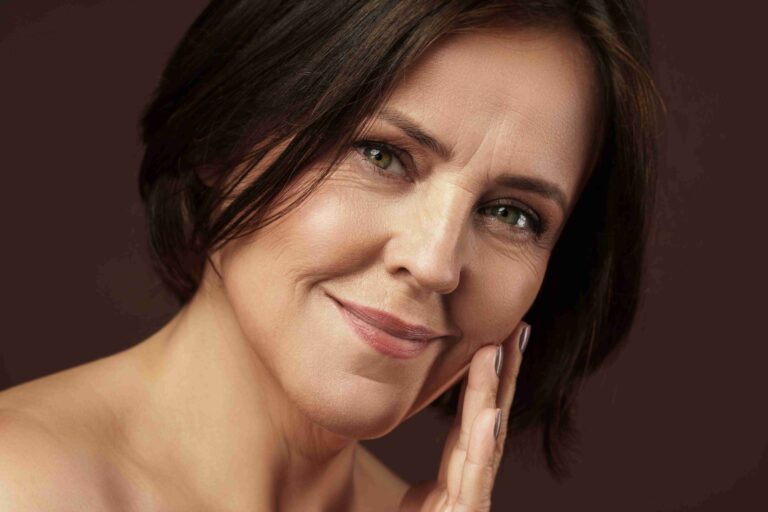
Hormonal Changes that Affect the Skin
Estrogen, progesterone, testosterone, growth hormone, and thyroid hormones all affect the skin in the following way:
- Estrogen: Declining estrogen during menopause correlates with reduced collagen types I and IV in the dermis and basement membrane. This leads to thinning of the skin, wrinkles, and reduced structural integrity. Estradiol therapy can increase transforming growth factor-beta (TGF-β), which promotes collagen production and skin elasticity Estrogen also increases tissue inhibitor of metalloproteinases (TIMPs), reducing deleterious matrix metalloproteinases (MMPs). Overall, estrogen replacement increases collagen types I and III content, skin thickness, elasticity, and moisture content. Topical estrogen treatments may help improve skin thickness and hydration
- Progesterone: Decreased progesterone during menopause is associated with reduced production of skin surface lipids such as ceramides, cholesterol, and fatty acids. This leads to a compromised lipid barrier and dry skin on the face. When combined with estrogen therapy, progesterone stimulates sebaceous gland activity and leads to increased oil production
- Testosterone: Low testosterone leads to impaired stimulation of collagen production. Testosterone is converted to estradiol via aromatase to activate estrogen receptors which then increases collagen production
- Human Growth Hormone: Low HGH levels during menopause leads to thinning of the skin as cell proliferation and extracellular matrix is reduced. Supplementing with growth hormone can help increase skin thickness and collagen
- Thyroid Hormone: The active thyroid hormones triiodothyronine (T3) and thyroxine (T4) increase mitochondrial activity, ATP production, and antioxidant enzymes in dermal fibroblasts. They upregulate collagen types I and III gene transcription, helping to thicken aged skin. Decreased thyroid hormones during menopause reduce mitochondrial activity and collagen production in fibroblasts

